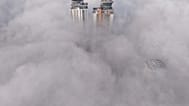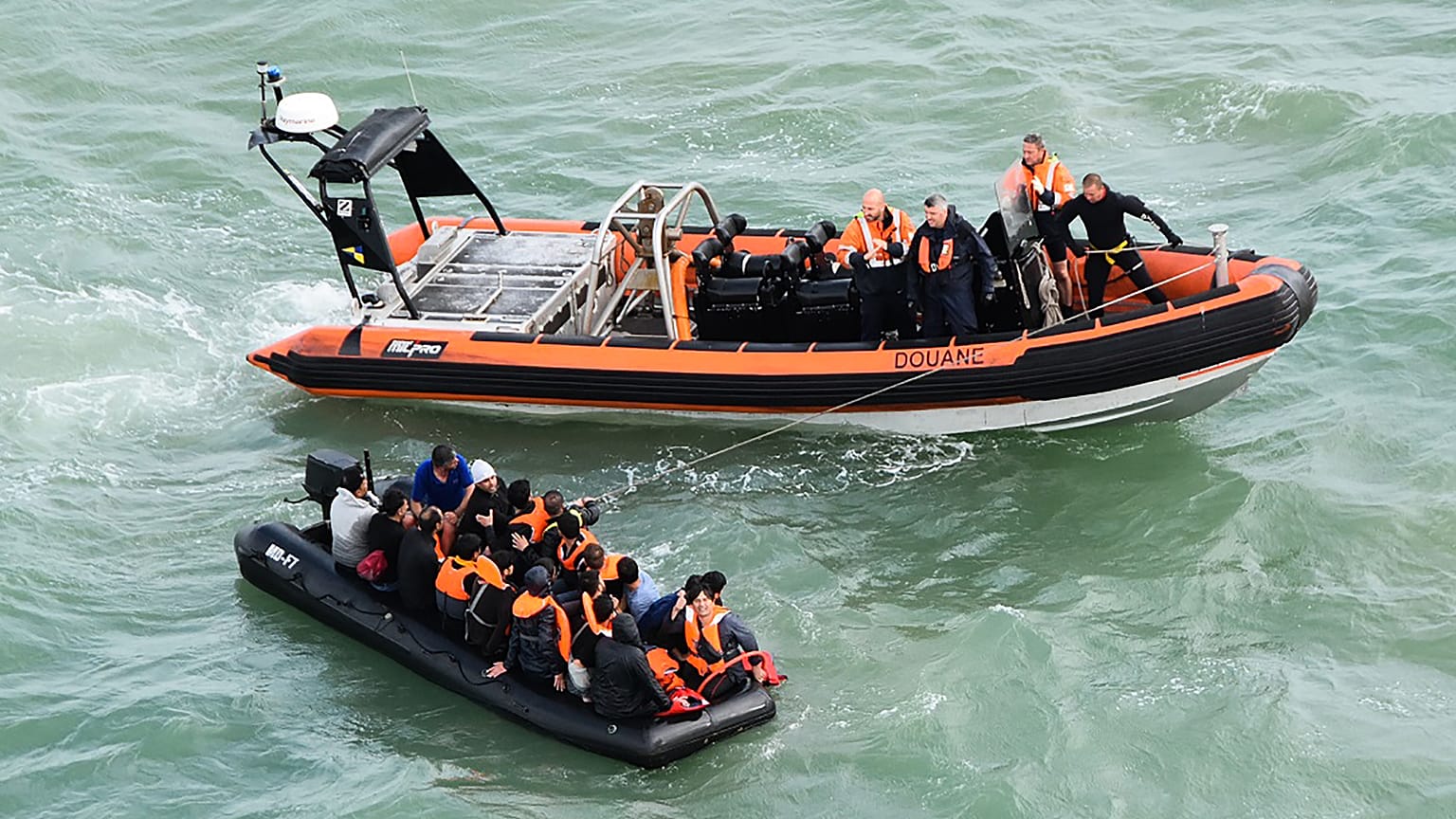Stranded in France, forced out of Italy, refugees make a desperate bid for Britain
In the early hours of 27 March, 2019, a British Border Force cutter intercepted an inflatable boat close to Folkestone, Kent. On board were 11 adults, two children, and a 31-year-old Iraqi that officials had seen before.
It was the second time that Sarbast Mohammed Hama, 31, had been picked up in boat off the English coast. On Christmas Day 2018, he had been found off the coast of Deal, also in Kent, with 10 Iraqi nationals. He told officials he was from Iran, and submitted an immigration application.
In July, Hama was jailed for three years and four months at Lewes Crown Court after admitting assisting unlawful immigration into the UK. Border Forces’ Steve Whitton said that Hama’s actions had been “reckless” and the vessels used were unfit to cross the English Channel.
Turned back
Since January, the UK Home Office have returned 65 people who crossed the stretch of water between Britain and mainland Europe. On August 28 alone, 64 people were stopped off the coast in five boats, and one landed on a Sussex beach.
The arrivals prompted Home Secretary Priti Patel to travel to Paris to discuss the issue with her French counterpart. Speaking following the meeting, she said: “It’s vital we [...] stop the boats from leaving French shores and dismantle the criminal networks driving this activity.”
A total of 900 people have crossed the English Channel so far in 2019, while many more have been intercepted by the French coastguard. British territorial waters extend 12 miles from the UK coast, and if boats cross that line they cannot be turned back.
At its closest point, the distance between the UK and France is just 33 kilometres, but as well as being one of the world’s busiest shipping lanes, the English Channel is rough and unpredictable even for experienced sailors.
James Tomlinson, a Harwich-based sailor with more than 40,000 nautical miles under his belt, has crossed the stretch between the UK and France hundreds of times and says the sight of heavily-laden migrant boats making the journey leaves him aghast.
“I know what it is like out there. Even in the summer, on the warmest day, it can be quite different offshore,” he told Euronews.
“They’re not properly dressed, they’re in an exposed boat, and they’re ill - because everyone is ill when they first go to sea. It would be dangerous for them to put to sea anywhere under those conditions - it would be dangerous in a river.”
In May 2019, a French national was jailed for 18 months for selling 39 small boats to groups of migrants attempting to make the crossing, while fishermen have reported break-ins and thefts as boats are stolen by people-smuggling gangs in northern French ports.
Read More: A flipper and a plastic bottle float: the story of one Iraqi man's deadly asylum bid
As well as using traffickers, many migrants organise the crossing themselves: “Sometimes they club together and buy a boat,” Bridget Chapman, learning and project coordinator for Kent Refugee Action Network in Folkestone, told Euronews.
“One young woman that made had the crossing from Turkey to Greece, but said the Channel crossing was much scarier - it was cold, it was rough,” she said.
Only one person has been confirmed dead after making the crossing by boat, in April 2019, but on August 23, an Iraqi, Niknam Masoud, was found drowned off the Belgian coast having tried to swim to the UK from France.
That people are willing to go to such lengths to cross despite the clear danger reflects their desperation, said Catherine Woollard, secretary-general of the European Council on Refugees and Exiles.
Kurdish minority
In some cases, migrants are drawn to the UK because they speak English as a first language, others because of colonial, historical and cultural links with Britain. Many have family in the UK and have been unsuccessful in getting visas to join them there.
Others are arriving in northern Europe due to the hardline policies towards the asylum system under the outgoing Italian government.
“There are also people who have applied for asylum in France but whose cases are taking a long time to process and who have no accommodation in the meantime,” Woollard said.
The majority of those intercepted in the English Channel this year have been either Iraqi or Iranian, and while government statistics do not specify ethnic groups, NGOs believe that a large proportion of them are from both country’s Kurdish minorities.
“They are a minority that is often given an extremely hard time,” says Chapman.
For Iranians, recent statistics on successful asylum applications may be a factor: 4,208 Iranians claimed in Britain in the year to June 2019 - up 73% on the previous year and the highest of all nationalities - and 62% were successful, Home Office data reveals.
Iraqis made up the second biggest group - with 3,180 applications - but only 26% of those claims were successful, compared to 94.2% and 45.9% in Italy and Germany.
In Folkestone, said Chapman, the reaction of local people to the new arrivals has been mixed.
“Folkestone has a long history of accepting refugees. In 1914 when Germany invaded Belgium, 19,000 people made the journey across the Channel,” she said.
“Some people are frightened by the narrative that suggests that there is a huge number of people coming. But others are very, very sympathetic.”















